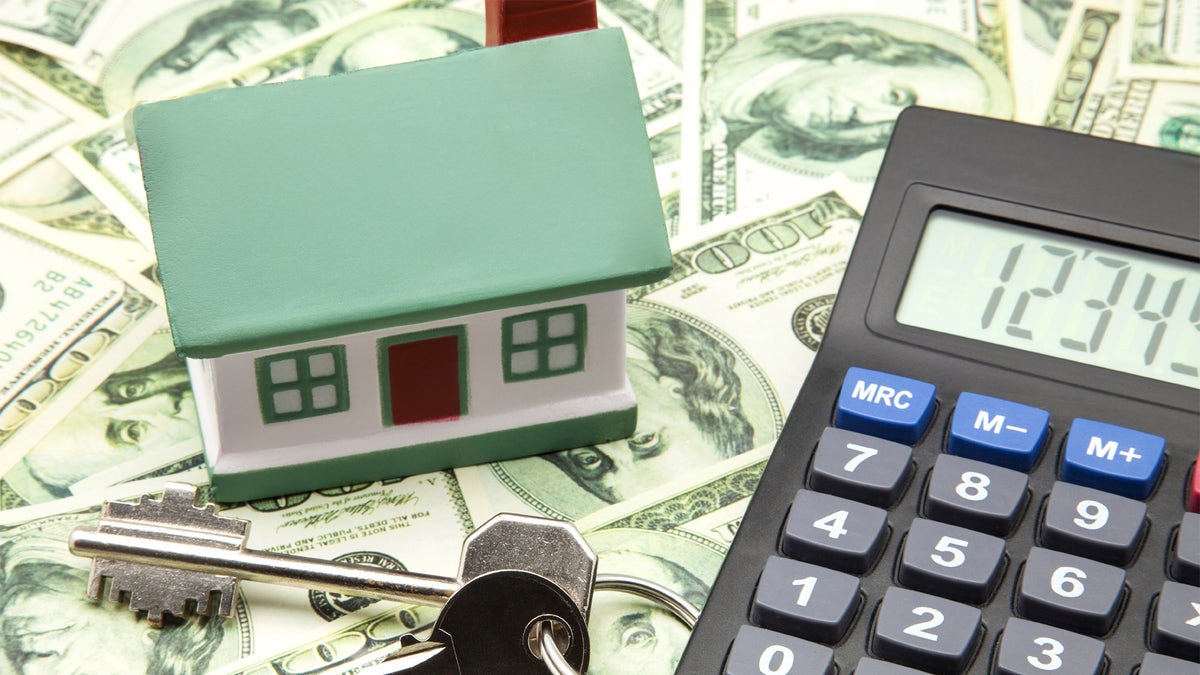
mortgage-costs
Paying a mortgage is a huge financial drain. So you definitely don't want to pay so much as a penny more than you should -- but it happens.
Even if your financial smarts are top-notch, overlooking small details can inflate the amount that you shell out. Here are the main reasons homeowners pay too much -- and how to whittle those sums down to size.
Reason 1: You should have gotten an ARM
The majority of home buyers get a fixed-rate mortgage, because this guarantees the interest rate they pay will remain the same over the life of the loan. Yet certain home buyers could have saved big-time by taking on the more "risky" alternative: an adjustable-rate mortgage, which has an attractively low initial rate that adjusts according to the market after a set period.
Many people are leery of ARMs, which got a bad name during the housing bust when thousands of homeowners saw their monthly payments balloon after that initial period expired, but today's ARMs have more safeguards for consumers. And they can be great for certain types of home buyers. If you don't expect to stay in your new home for more than a few years, you can enjoy an ARM's lower initial rate and sell your home before the adjustment takes effect.
"A really low teaser rate makes sense for someone who doesn't plan on living in the house for that long," says Kenneth Crichlow, the operations manager at First Rate Funding in Albany, NY. "If it's a starter home, and they figure in five years they'll be ready to get a bigger, better house, they won't hit the point where the rate might go up."
If this fits your timeline, check for ARMs with 5/1, 7/1, or 10/1 terms, depending on your plans (that first number indicates the year length of the introductory period, and the "1" means the rate will adjust once a year thereafter). These ensure your rate remains in place until you're ready to move on, without risking a surprise boost.
Reason 2: You could have bought points but didn't
One common way to pay less interest on a home loan is to purchase discount points upfront -- that is, if you can afford them. Typically, a discount point costs 1% of the home's value. For a $200,000 house, you can pay $2,000 to reduce your interest rate by 0.25% (the percentage can vary by lender).
You might find this ridiculous -- paying more upfront just for the slightest change in your interest rate? Boo, hiss. But this can really work out in the long term.
For that $200,000 home, for example, buying just 2 points to knock your interest rate from 5% to 4.5% can lower your monthly payments from $1,074 to $1,013 a month, saving you $732 per year -- and $21,699 over the life of a 30-year loan.
Unlike an ARM, you'll need to stay in your house longer to make this worthwhile -- at least six years, to recoup the $4,000 for the points.
Reason 3: You didn't use a broker
Even if you consider yourself financially savvy, a mortgage broker can save you a major chunk of change over the life of your loan.
"If you want to get the best possible mortgage for you and your family, the most important thing is to find a mortgage adviser who can offer you options and keep an open mind," says Casey Fleming, author of " The Loan Guide: How to Get the Best Possible Mortgage."
There are just so many types of mortgages out there, a broker or adviser (an adviser typically works with one bank, whereas a broker is independent) can be incredibly helpful in finding options that fit your situation.
"The right loan depends on your circumstances, goals, and concerns," says Fleming. "One-solution mortgage lenders do a huge disservice to customers. They don't look at the big picture and offer options that solve the concerns that the consumer either has, or should have."
Reason 4: Things have changed -- but your mortgage hasn't
Once you've secured your mortgage, your work is done, right? Not necessarily. Mortgages can, and should, move with the times. For instance, if interest rates have plummeted, you could save a bundle by refinancing at a lower rate. Or even if interest rates have stayed steady, major changes may have happened with you.
For instance, when you purchased your home, you might have been aiming for the lowest monthly cost possible, since that's all you could afford. Maybe you bought a $200,000 home and selected a 30-year fixed-rate mortgage that costs $1,074 per month. Which is fine, but at 5% interest, by the time those 30 years are up, you will have paid about as much in interest as the principal -- another $200,000.
So if your income has risen significantly since you first got your mortgage, you might want to refinance for a 15-year term. Your monthly payments will rise, but only to $1,288 per month, and if you can afford them, you'd save a whopping $90,000 in interest by not stretching it out over 30 years. Best of all? You'll be mortgage-free in half the time.
-- -- -- -- --
More from realtor.com: What Your Mortgage Broker Wishes You Knew







































